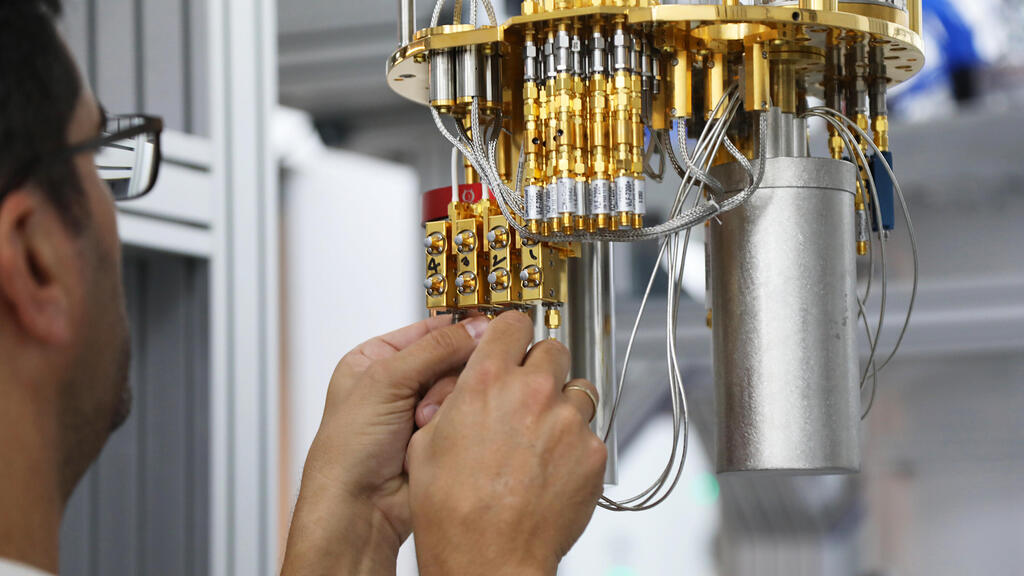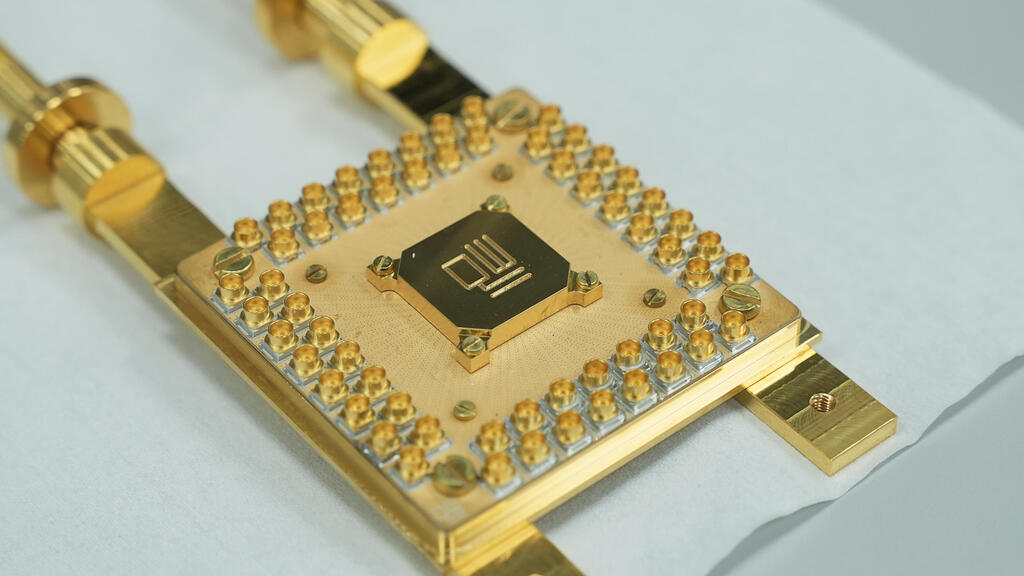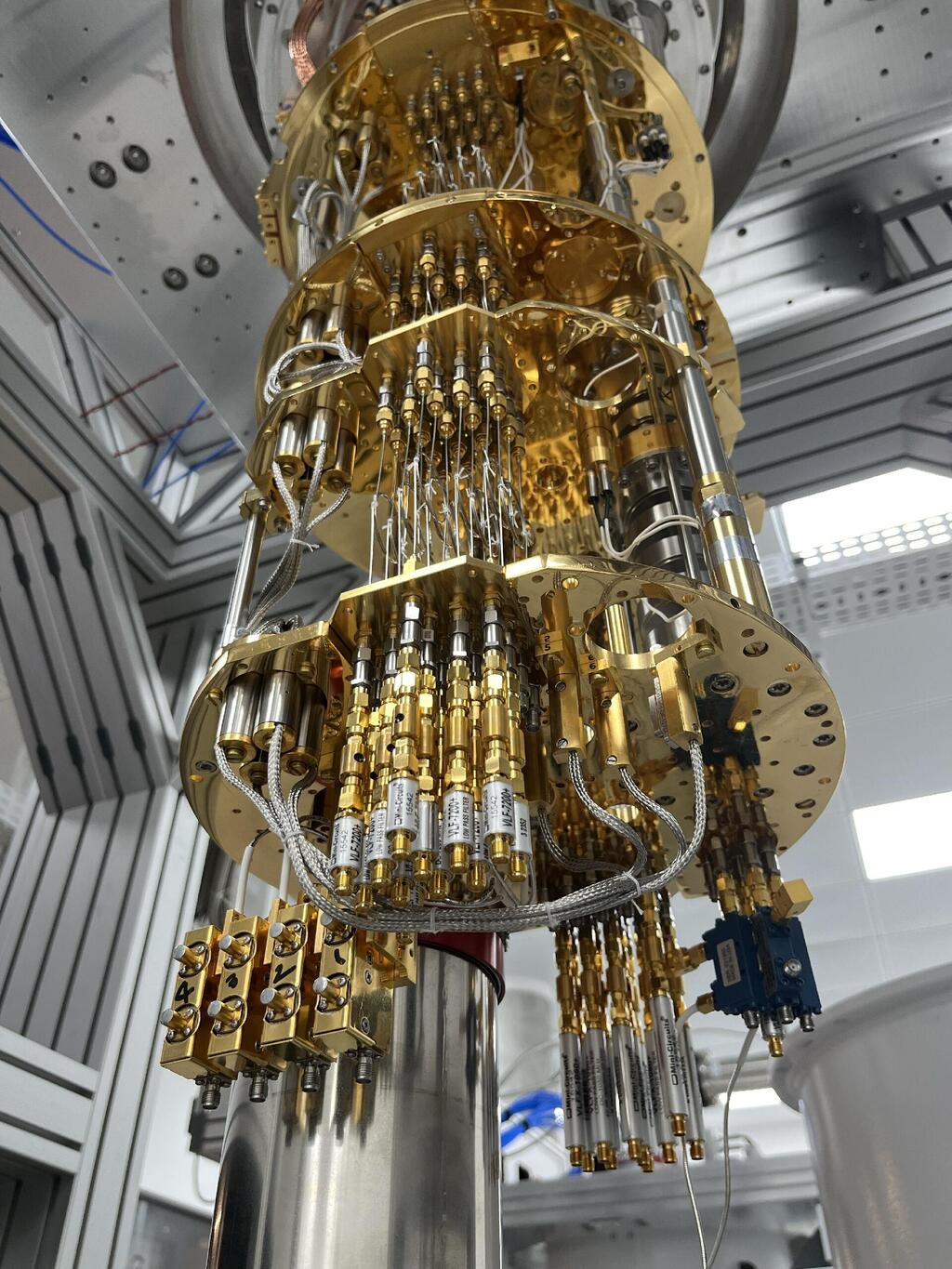Getting your Trinity Audio player ready...
Israeli quantum computing company Quantum Source announced Tuesday that it raised $50 million, one of the largest funding rounds in Israel’s quantum sector.
What might have drawn little attention in previous years has become a major event, especially as it involves a technological breakthrough in quantum computing.
Among those particularly interested in this field, which promises computers with unimaginable processing power, is Israel’s Defense Ministry. It’s possible that Quantum Source’s technology could later be used to safeguard Israel’s security and other defense-related missions.
The funding was raised in a Series A round led by Eclipse Ventures, with participation from Standard Investments, Level VC, Canon Equity, and existing investors who expanded their investment: Pitango First, Grove Ventures, Dell Technologies Capital, and 10D. This brings the company’s total funding to $77 million.
Founded in 2021 by Oded Melamed (CEO), Gil Semo (VP of R&D), Dan Harash (chairman), and Professor Barak Dayan (chief scientist), Quantum Source employs 45 people at its Ness Ziona offices, more than half of whom hold PhDs. Last year, former Prime Minister Naftali Bennett joined the company’s board.
A whole new world of possibilities is unfolding
To understand investors’ enthusiasm, one must grasp the market in which Quantum Source operates. Unlike conventional computers where each bit is either 0 or 1, quantum computers utilize qubits, which exist in "superposition," meaning they can be 0, 1, or countless states in between, vastly amplifying their computational power.
Five years ago, Google demonstrated how a quantum computer with several dozen qubits could complete a calculation in 200 seconds that would take a powerful conventional computer 10,000 years. Quantum Source claims its technology will enable quantum computers with millions of qubits in just a few years. While competitors like Google and IBM use silicon-based technology to build their quantum computers, Quantum Source employs a completely different approach based on photons (light particles), allowing it to overcome the hurdles slowing its rivals.
Recently, two major deals were announced in the quantum computing sector: The Australian government signed a $620 million deal with British company PsiQuantum to build a photonic quantum computer, and the U.S. state of Illinois committed about $500 million to a similar system.
According to Quantum Source CEO Oded Melamed, the company’s technology surpasses PsiQuantum’s, as it aims to produce photonic quantum computers the size of standard servers rather than the massive systems that occupy enormous hangars. “That’s why investors are eager to put their money here – because they see the path to a commercial system, and photonics looks like one of the most promising technologies in the field,” he explained. “Our competitors started in 2016, and we founded our company five years later. Being part of the second wave gives us the advantage of learning from others’ mistakes. Now, we’re ready to conquer the market,” Melamed said.
Naftali Bennett, now a board member, also highlighted the potential of the technology, noting: “The recent wave of government investments, pouring hundreds of millions of dollars into photonic quantum computers, is a recognition of this technology’s promise and potential.”
Could the big tech companies replicate your technology?
“This technology is extremely complex, built on decades of research at the Weizmann Institute. There are only a handful of research groups worldwide who truly understand this field. We are unique, and it would take others at least a decade to develop something similar. Besides, we are fully protected by patents,” Melamed asserted.
And if you receive a buyout offer?
“That option is always on the table, but our management team’s goal is to go all the way – develop a unique, blue-and-white technology that puts Israel on the map. We’re not following the big companies; we’re leading,” he said.
A Strategic Necessity
In Israel, the prevailing assumption is that the country must quickly acquire quantum computers and supercomputers, as other nations might impose restrictions on selling these technologies to Israel, much like how Britain recently restricted arms exports to Israel or how France blocked Israeli participation in its annual arms fair.
Israel has around 10 companies in the quantum sector, some developing quantum computers and others focusing on supporting technologies. This year, the Israeli Quantum Computing Center was opened in Ramat Aviv, operated by Quantum Machines, housing two small quantum computers – one from a Dutch company and another from a French firm.
Additionally, Israel’s Innovation Authority runs a quantum computing consortium that includes several startups developing quantum computing technologies. Alongside it is a consortium of Israeli defense companies, in collaboration with the Ministry of Defense’s Directorate of Defense Research and Development (MAFAT), focusing on encryption and code-breaking capabilities. MAFAT’s head, Dr. Danny Gold, has previously stated that quantum computing is emerging as a critical component for Israel’s national security and technological superiority.
The potential of quantum computing is immense: from developing new drugs currently impossible to create, to inventing new materials, aircraft with unprecedented capabilities, solving complex economic models that could generate significant revenue for financial institutions, and of course serving as a strategic tool for new military technologies and cracking all existing encryption, including commercial bank accounts and military battle plans.
That’s why the world – both commercial and governmental – continues to work tirelessly on developing quantum computers while simultaneously advancing quantum encryption that can withstand them.





